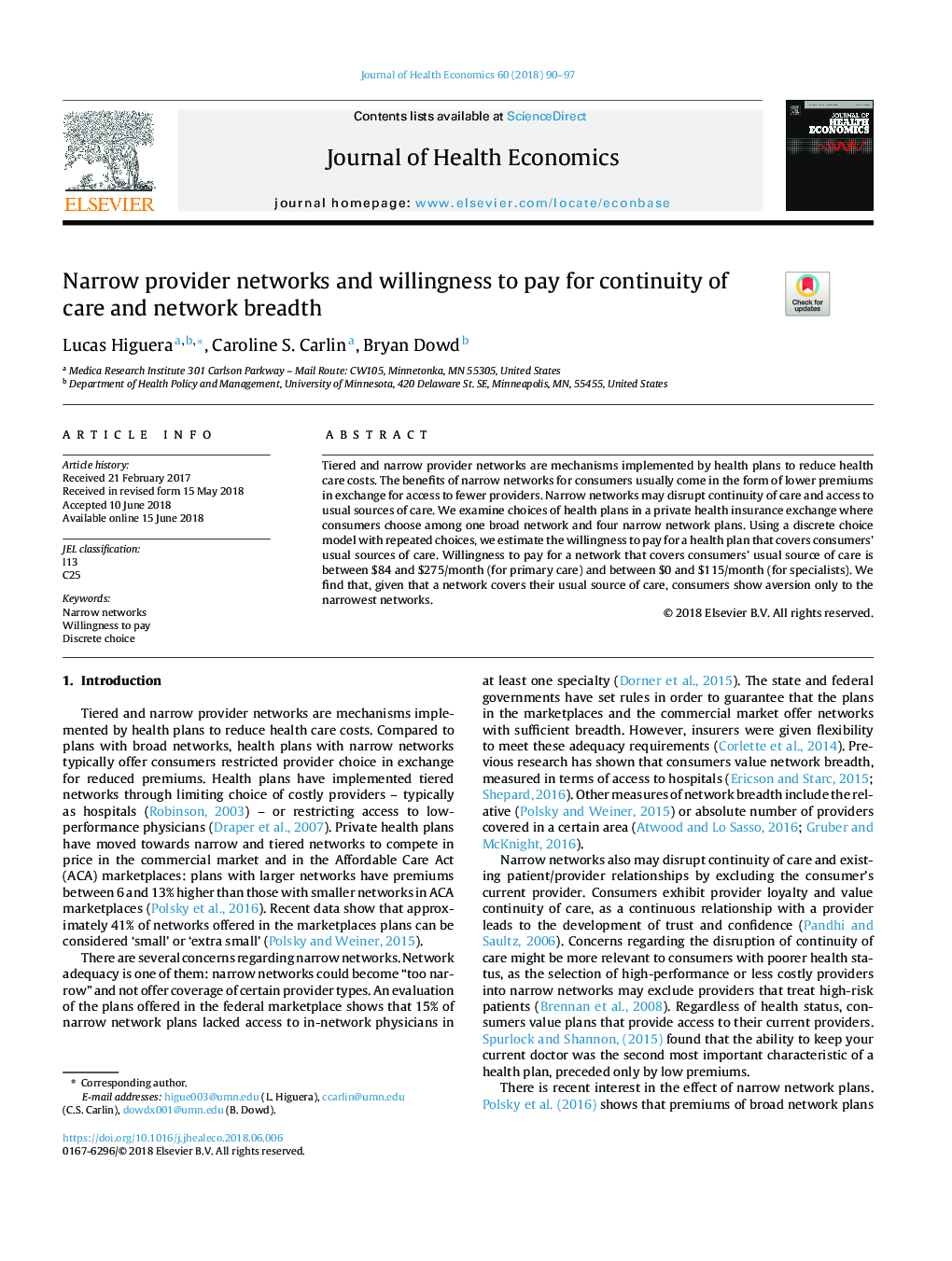| Article ID | Journal | Published Year | Pages | File Type |
|---|---|---|---|---|
| 7362704 | Journal of Health Economics | 2018 | 8 Pages |
Abstract
Tiered and narrow provider networks are mechanisms implemented by health plans to reduce health care costs. The benefits of narrow networks for consumers usually come in the form of lower premiums in exchange for access to fewer providers. Narrow networks may disrupt continuity of care and access to usual sources of care. We examine choices of health plans in a private health insurance exchange where consumers choose among one broad network and four narrow network plans. Using a discrete choice model with repeated choices, we estimate the willingness to pay for a health plan that covers consumers' usual sources of care. Willingness to pay for a network that covers consumers' usual source of care is between $84 and $275/month (for primary care) and between $0 and $115/month (for specialists). We find that, given that a network covers their usual source of care, consumers show aversion only to the narrowest networks.
Related Topics
Health Sciences
Medicine and Dentistry
Public Health and Health Policy
Authors
Lucas Higuera, Caroline S. Carlin, Bryan Dowd,
